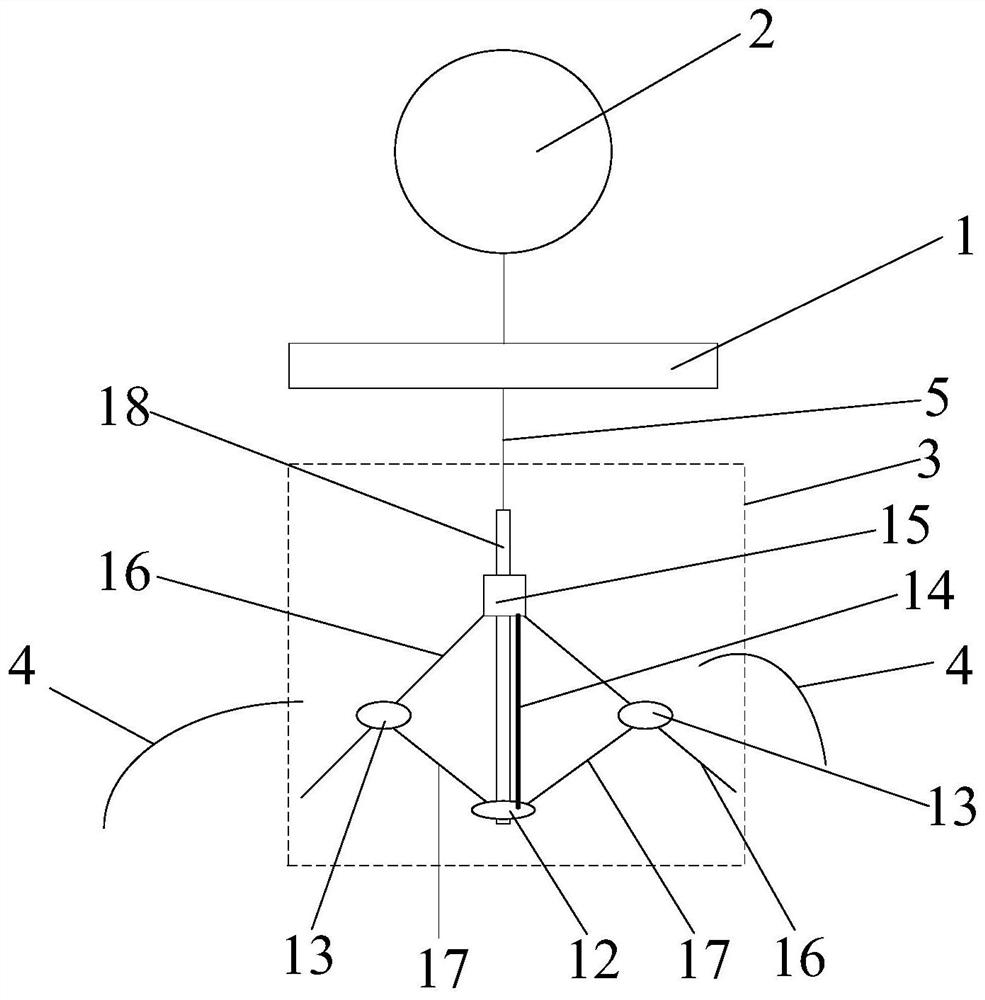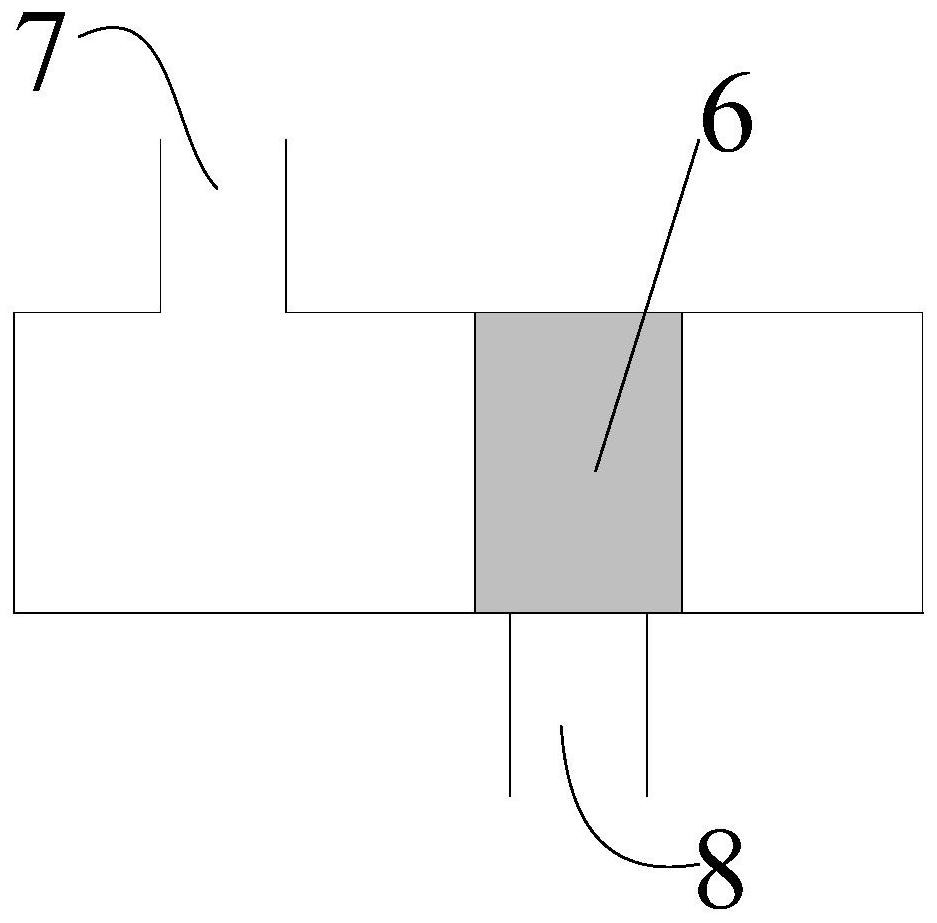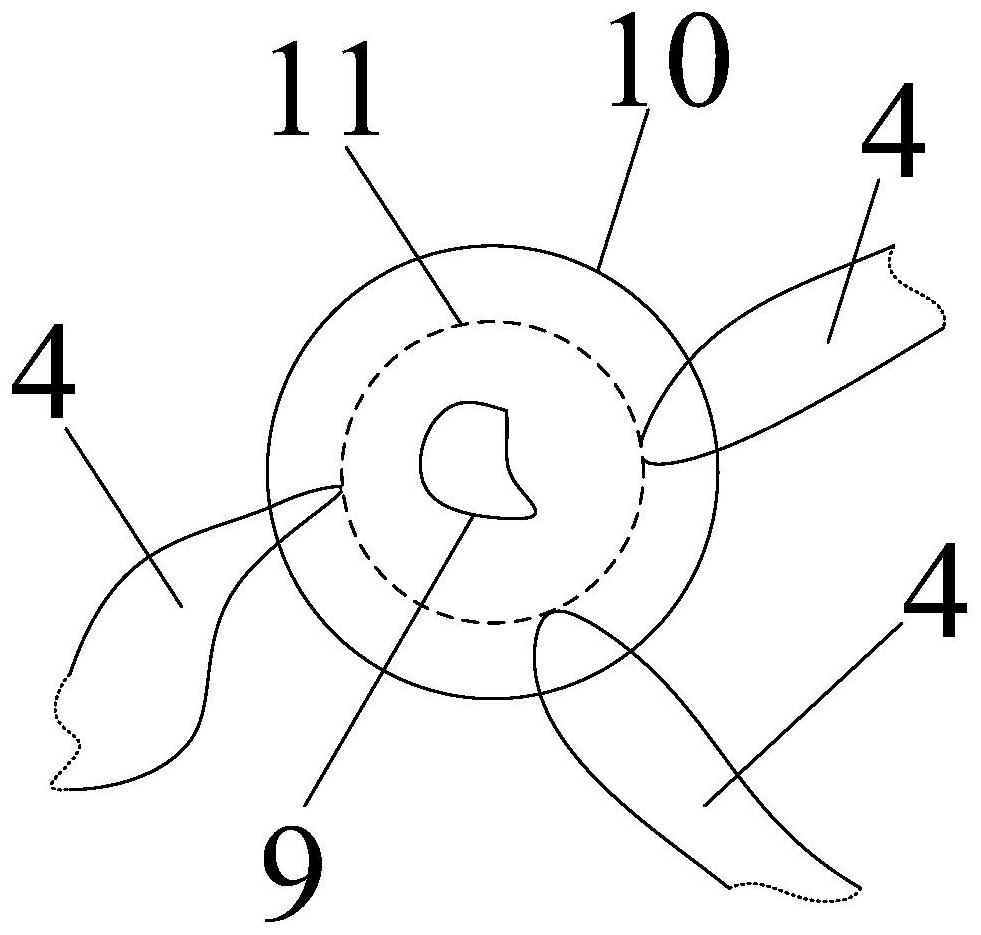Unmanned aerial vehicle hovering in air through telescopic frame and control method
A technology of unmanned aerial vehicles and telescopic racks, applied in the field of unmanned aerial vehicles, can solve the problems of limited electric capacity, reduced electric power, and the inability of unmanned aerial vehicles to stay for a long time, so as to achieve the effect of saving electricity
- Summary
- Abstract
- Description
- Claims
- Application Information
AI Technical Summary
Problems solved by technology
Method used
Image
Examples
Embodiment Construction
[0036] Such as figure 1 As shown, a kind of unmanned aerial vehicle that hovers in the air through the telescopic frame 3 of the embodiment of the present invention,
[0037] It includes a UAV body 1, an identification device and a chip, and a balloon 2 for hovering is also provided directly above the UAV body 1, and a balloon 2 for hovering is also provided directly below the UAV body 1 for interacting with vegetation. The telescopic frame 3 for hooking;
[0038] The balloon 2 is connected to one end of the first two-position two-way solenoid valve, the other end of the first two-position two-way solenoid valve is connected to the external environment, and the balloon 2 is also connected to the second two-position two-way solenoid valve in turn and a gas cylinder, wherein the first two-position two-way solenoid valve, the second two-position two-way solenoid valve and the gas cylinder are all fixed on the drone body 1, and the gas cylinder is The stored gas has a lower dens...
PUM
 Login to View More
Login to View More Abstract
Description
Claims
Application Information
 Login to View More
Login to View More - R&D
- Intellectual Property
- Life Sciences
- Materials
- Tech Scout
- Unparalleled Data Quality
- Higher Quality Content
- 60% Fewer Hallucinations
Browse by: Latest US Patents, China's latest patents, Technical Efficacy Thesaurus, Application Domain, Technology Topic, Popular Technical Reports.
© 2025 PatSnap. All rights reserved.Legal|Privacy policy|Modern Slavery Act Transparency Statement|Sitemap|About US| Contact US: help@patsnap.com



